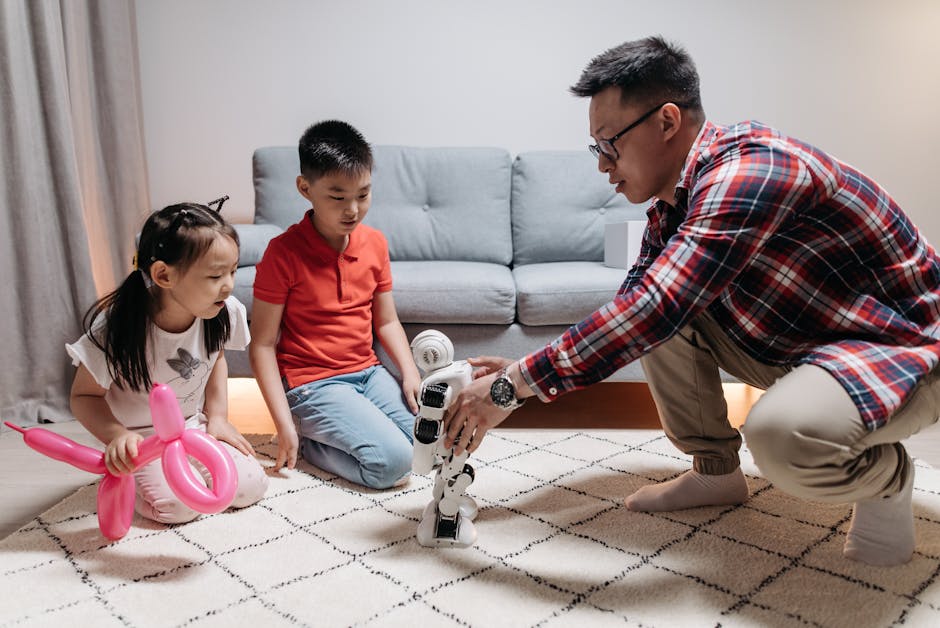A multitude of technological tools are now deeply integrated into the daily lives of parents and children, fundamentally impacting family interactions. From video calls that bridge geographical distances to online educational platforms that supplement classroom learning, technology offers unprecedented opportunities for connection and support. Parents can access a wealth of information regarding child development, parenting styles, and educational resources, empowering them to make informed decisions. Similarly, children can access a broader range of educational materials and participate in global communities, fostering a more interconnected and diverse worldview.
The rise of online platforms connecting parents, grandparents, and extended family members is particularly noteworthy. Families separated by distance can now maintain strong relationships through video calls, shared online photo albums, and virtual family gatherings. This accessibility, however, simultaneously introduces the potential for blurring boundaries between online and offline interactions. Maintaining a healthy balance, ensuring that face-to-face interaction isn’t overshadowed by digital connectivity, becomes a crucial parenting skill. It’s not just about the frequency of interaction, but also the quality, and whether it strengthens or weakens real-life connections.
Furthermore, the changing landscape of work, increasingly influenced by remote work options, profoundly affects family structures. Parents juggling work-from-home responsibilities and childcare may experience unique challenges, demanding novel approaches to structuring family time. Efficient time management, clear communication protocols, and the utilization of shared childcare responsibilities can help navigate the complexities of this modern arrangement. Flexible work schedules, collaborative parenting, and shared childcare are all areas where technology can foster greater adaptability and cooperation.
However, technology’s influence isn’t without its drawbacks. The constant connectivity fostered by smartphones and social media can lead to increased stress and anxiety, particularly for adolescents. The curated online personas presented on social media can often create unrealistic expectations and comparisons within families, leading to feelings of inadequacy and pressure. This highlights a crucial parenting role: guiding children in navigating the digital world with critical thinking skills and a healthy sense of self-worth, untethered from online validation.
Moreover, the digital divide, the disparity in access to technology and the internet, poses a significant challenge to equitable family development. Families with limited access to technology or reliable internet services may struggle to participate in the online resources and support systems that many others take for granted. Policies and programs aiming to bridge this divide are critical to ensuring that all families benefit from technology’s potential for enhancing family life, fostering equity, and promoting equal opportunities for growth.
Another pivotal aspect is the impact of technology on family values and cultural norms. The constant bombardment of information from digital sources can influence the way families perceive traditional values and beliefs. The ease with which individuals can connect with diverse perspectives online also introduces a need for parents to navigate these new influences and maintain family values in an evolving social context. It’s imperative that families cultivate discussions about the role of technology in their lives, establish healthy boundaries, and encourage open communication regarding online content and its influence.
The proliferation of online parenting communities and platforms creates a complex situation. While these offer invaluable support and connection, they can also inadvertently perpetuate unrealistic expectations and create a sense of competition among parents. Cultivating a supportive, yet critical, approach to the information shared online is essential. Parents need to discern valuable information from potentially harmful trends or fads, using their own judgment and research to ensure they are making decisions that best suit their family’s unique needs and circumstances.
Ultimately, technology is not inherently good or bad; its impact on family structures hinges on how it is used and integrated into daily life. Responsible technological practices, coupled with a strong emphasis on open communication, critical thinking, and maintaining healthy boundaries, are critical to harnessing technology’s positive potential while mitigating potential risks. Families need to develop a framework that acknowledges the role of technology while prioritizing meaningful interactions, fostering strong relationships, and nurturing a sense of shared values and purpose.
The future of family structures is inextricably linked to our evolving relationship with technology. By understanding the complexities and potential challenges, families can proactively shape a future where technology enhances connections, fosters growth, and strengthens the bonds that define the family unit. Recognising the nuanced impact of technology, and actively engaging with the digital world in a mindful and intentional way, is essential for ensuring a positive trajectory for families.
